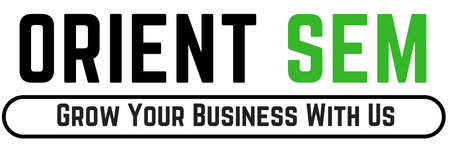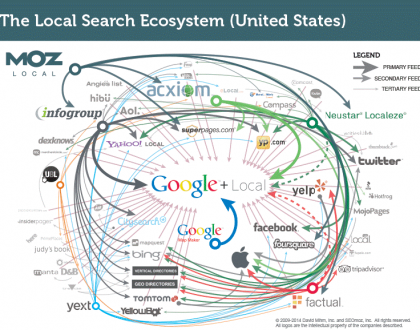Why Should You Invest in Hyperlocal Keywords

by Eptikar Ali
To be honest with you, we love ourselves some DC references. On that note, Batman can forever be the hero that Gotham needs (but doesn’t deserve) and yet, Superman will always be treated like the God he is in Metropolis.
The takeaway? You need to be at the top locally to achieve that superhero status. Implying this to the real world, your business’s local performance is vital in building a strong user base and generating leads.
This is a fact that SEO and Google itself has mentioned time and again across social media. Sadly, the solutions aren’t as transparent as required for small businesses.
However, we do have an answer for you.
If the title was any hint, we will discuss hyperlocal keywords and their importance in the formula of local search rankings.
What are Hyperlocal Keywords?
Hyperlocal keywords are location-specific keywords optimized for very small regions to target the ideal audience. Which, if you noticed, is the same definition as local and geo-targeted keywords. You may as well call it a case of semantics. On the other hand, in comparison to local, hyperlocal keywords target a smaller region and a more niche audience.
The location-specific feature means that hyperlocal keywords are mostly long-tails, which further highlights the intent based nature of local search queries. We recently brushed over local search in our post about long-tail keyword research strategy, so that will be a fine place to learn about identifying suitable keyword tactics for your business.
Why are Hyperlocal Keywords Important?
In order to personalize its search engine for users, Google has released various updates to its algorithm which have influenced the importance of local search performance.
The growth of mobile search has also contributed to the value of local rankings. With 56% of mobile searches being made with local intent, it is a wise move to invest in local SEO.
Considering these facts and arguments, the potential of hyperlocal keywords becomes clear.
For instance, imagine a small pizzeria in a sub-urban town that wants to improve their online presence and increase monthly customers locally. They feature unique (and delicious) recipes and allow orders directly from their website and on phone. We can name this shop ‘Bernardo’s Pizza’. We will give the restaurant a decent website listing their menu, order and delivery information.
Now, Mr. Bernardo here will have a tough time ranking for the search term ‘pizza’ against the likes of Pizza Hut or Papa John’s Pizza.
However, by targeting location-based search queries, the restaurant can actually rank on the first page, together with call-to-action buttons for directions, contact info or online orders.
Since a huge share of local searches actually drives sales, hyperlocal keywords allow these small businesses to increase conversions, along with the traffic for their website. These numbers also convert to offline results, as our hypothetical restaurant can build their word-of-mouth reputation.
As the business achieves better visibility in search results, they can expand further (a chain of restaurants, maybe?) and their growing reputation will further aid discovery, traffic and conversions in these new locations.
How to Find the Right Local Keywords?
We will be pleased if Mr. Bernardo pizza shop can grow thanks to hyperlocal keywords (and it’s not just because we love pizza). However, before we can manage to savor this imaginary delicacy, we will have to help them expand to our location.
To achieve that goal, we first need to find the right local keywords for their business.
Step 1 – Keyword Data Tools
Whether you are searching for long tail keywords or local keywords, keyword data tools will always be the first step.
Let’s assume that this example ‘pizza shop’ is located in Emeryville, California. With a monthly search volume of around 100 for the search query ‘pizza Emeryville’, the keyword does not seem as promising as ‘pizza’, which gets over a million searches per month. However, by adding location to the keyword, we are actually able to minimize the competition for the search term, thus improving its chances of top rankings.
‘Pizza delivery’ or ‘order pizza online’ are some other examples of keywords that can be localized for our target location.
For queries with near zero searches per month, analyzing the same keyword’s data for nearby locations to identify search patterns can prove to be helpful in finding suitable keywords.
As we’ve mentioned in the previous section, local queries have the highest conversion rate of all searches made. For instance, over 78% of local mobile searches result in a sale within a few hours. When we factor in this statistical data of local searches and their conversions, we can obtain a very healthy growth in monthly user base.
Step 2 – Take Ideas from Google AutoComplete
Google AutoComplete enlists the top searches that users made related to our query, which can prove helpful in generating new local keywords. The knowledge of how the target audience is formulating their queries allows us to identify the keywords that can drive maximum traffic to the client website.
In this search, ‘pizza online order’ and ‘pizza online near me’ are decent options to localize and compete for.
Also, the ‘searches related to…’ section at the bottom of the SERPs highlights the queries similar to our own, improving our set of examples to work with.
We Must Keep Searching
Now that we have prepared a list of ‘pizza’ and ‘pizzeria’ related keywords, we can move to apply the name of the town. Some of these final keywords may be
- pizza shop Emeryville
- order pizza online Emeryville
- Emeryville pizza home delivery
- Pizza restaurant near me
The rules of implementing keywords stay the same, which are – optimization of on-page elements such as title and meta tags, anchor text, heading tags etc. The website content benefits from the use of these keywords, but we must avoid keyword stuffing and other black hat SEO tactics.
Updating Google business listings with exact business categories and tags based on our selected keywords further improves our presence in SERPs, attracting more users.
Once we’ve implemented these new hyperlocal keywords in all the right places, we can start with the process of testing and monitoring analytics data.
Certainly, some results will not be as favorable as we expect them to be and our job is to rectify these errors and achieve the goals for the business.
Final Thoughts
Thanks to their highly specific nature, targeting hyperlocal keywords builds a platform for small businesses to grow from – developing a strong user base and online reputation.
Plus, when we factor in the consistent increase of intent based mobile search and customization/localization of search results to meet an individual user’s needs, hyperlocal is the perfect way for the business to improve outreach and get more conversions.


